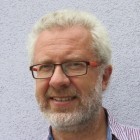Panel Discussion EDT128
How Will Emerging Technologies Influence Personalisation, Efficiency, Costs, Ethics and Trust in Online, Open and Distance Education?
Date Thursday, Nov 28 Time – Room: Potsdam I
This panel recognises the costs and the benefits of using emerging technologies to deliver high- quality, data-driven, personalised educational experiences. The members will discuss pressing questions relevant to higher education institutions, educators, learners and ethicists alike. If big data, blockchain, AI are on top of your agenda as well, then be sure to join the conversation. We will look at emergent technologies and their roles in the educational experience; the educators' ethical responsibilities in applications of ICTs; geo-political trends of ICT developments; students' view on big data; and more.
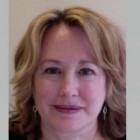
Barbara Wasson
University of Bergen, Centre for The Science of Learning and Technology (SLATE), Norway
Barbara Wasson is the Director of the Centre for The Science of Learning and Technology (SLATE) at the University of Bergen, where she is a full Professor in the Department of Information Science & Media Studies.
She has been involved in research on Technology Enhanced Learning since 1983 and has over 150 publications in the field. At SLATE she currenly is involved in several projects using machine learning and learning analytics and other modelling aspects of AI.
Wasson was one of the founders of Kaleidoscope, a European Network of Excellence on Technology Enhanced Learning, a European Network of Excellence in Technology Enhanced Learning and she is often used as an expert evaluator by the European Commission.
Her current research interests include collaborative learning in distributed settings, mobile learning, interaction design, computer support for collaborative learning (CSCL), mobile learning, learning games, intelligent tutoring systems, e-assessment, teacher inquiry, learning analytics, and pedagogical agents.
Links
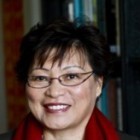
Anh Tho Andres-Kammler
Globethics.net, Switzerland
Dr Anh Tho Andres-Kammler holds a Doctorate in Business Administration (DBA) at Paris-Est University France. As a multicultural and multilingual professional with over 35 years of work experience, she is a Certified Translator for the Courts of Singapore and Switzerland in three languages (F/E/V).
In the field of education management, she was Program Director for the Executive MBA in Asia and has done extensive research on the Vietnam through her projects yourvietbooks.com and yourvietnamexpert.com.
Expertise: Business environment and intercultural contexts for ASEAN and EU markets. Change management, social contract theories, corporate governance, leadership and sustainable development studies.
Languages: English, French, German, Vietnamese. Other foreign languages include among others Russian and Norwegian. Tasks in the present position include research and development and implementation of distance learning programmes on Global Ethics Applied. Markets: Global.
Links
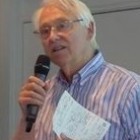
Alan Tait
Professor of Distance Education and Development, Pro Vice-Chancellor, Open University (OU), UK and Special Adviser at the ICDE, UK
Alan Tait is Emeritus Professor of Distance Education and Development at the Open University UK. From 2013-2015 Alan was Director of International Development and Teacher Education, and before that was Pro-Vice Chancellor (Academic) at the Open University UK 2007-2012, and from 2004-2007 Dean of the Faculty of Education and Language Studies. He was Editor of the European Journal of Distance and E Learning (EURODL) 2005-2013, was from 1989-1998 Editor of Open Learning, was President of the European Distance and E-Learning Network (EDEN) from 2007-2010, and Co-Director of the Cambridge International Conference on Open and Distance Learning 1988-2013. In 2012 Alan was awarded an Honorary Doctorate by Moscow State University for Economics, Statistics and Informatics, and appointed Visiting Senior Online Consultant at the Open University of China in 2013. Alan is founding Emeritus Editor of the Journal of Learning for Development (www.jl4d.org <http://www.jl4d.org> ), produced from the Commonwealth of Learning; Visiting Professor, Amity University, India; Distinguished Visiting Professor Open University of Hong Kong 2015-2018; Visiting Fellow of the Centre for Distance Education at the University of London; Visiting Professor at Aalborg University, Denmark 2012-2016; senior member of St Edmunds College, University of Cambridge, and transformation advisor for the Commonwealth of Learning at Botswana Open University 2011-2016.
Alan holds degrees from the Universities of Cambridge, London, and The Open University. He has worked widely in developing countries, and for international organisations such as UNESCO, the European Commission, and the Commonwealth of Learning. Recent publications include ‘From Distance learning to open education: continuities and discontinuities’, in Journal of Learning for Development (2018); Open Universities: Past, Present and Future’, in Journal of the Asian Association of Open Universities (2018), 'European leaders in Distance and E-learning', in Journal of Learning for Development 2017; 'The Lifelong Learning University of the Future', in Cendon, E., Mörth, A. & Pellert, A. (Hrsg.), Theorie und Praxis verzahnen - Lebenslanges Lernen an Hochschulen; 'Student Success, putting the learner at the heart of the system', ICDE, Oslo 2015; 'Enriching our Students’ Lives', in Explorations in Adult Higher /Education, Fall, Number 3, Voices that shape our Vision, pp 16-20 2014 ; Open Universities and innovation in Higher Education, in Bischoff F/Prang B (Hrsg), Weiterbildung und Lebenslanges Lernen an Hochschulen, Internationale Impulse für das deutsche Hochschulwesen; 'From place to virtual space: reconfiguring student support for distance and e-learning in the digital age', in Open Praxis, 2014; Distance and E Learning, Social Justice and Development: 'The relevance of the Capacity Approach to the mission of open universities', in the International Review of Research in Open and Distance Learning, 2013. Other publications can be found at www.researchgate.net <http://www.researchgate.net> . Alan has given keynote lectures in a range of places, most notably in 2014 the Asa Briggs Commemoration lecture at the Commonwealth of Learning Pan-Commonwealth Forum, Abuja, Nigeria.
Links
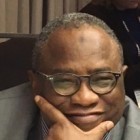
Abdalla Uba Adamu
Vice-Chancellor, National Open University of Nigeria, Nigeria
Professor Abdalla Uba Adamu: Setting New Gold Standard in African ODL Administration.
Since his appointment in February 2016 as the Vice-Chancellor National Open University of Nigeria (NOUN), Professor Abdalla Uba Adamu, has driven some ground-breaking changes that have elevated the public awareness of ODL. Through carefully thought-out policies and aggressive pursuit of ideals of quality education for all; Professor Adamu’s leadership of NOUN has inspired unprecedented acceptance of ODL as a mode of learning not only in Nigeria but also in neighboring West African countries. Projecting a philosophy that hinges on equalisation of educational opportunities, Professor Adamu has devised strategies for reaching and providing university education to individuals who ordinarily would have been excluded. His leadership intervention saw to the introduction of free education/scholarship to prison inmates and enhancing their enrolment into the National Open University of Nigeria; escalation of institutional support in IDP camps to students/study centres displaced by insurgency and natural disasters in some parts of Nigeria; provision of free education/scholarships to all levels of university education to indigent students across Nigeria.
Professor Adamu’s commitment to quality and functional higher education anchored on Information and Communication Technology has benefited the university in many ways. First it has led to massive investment in ICT infrastructure and establishment of three new ICT related directorates in the last three years. These directorates and centers have amplified student learning experience, created interactive online portals for students and faculty, provided a learning system that offers interactive course contents in digital formats that are accessible anywhere, anytime and at a pace convenient for the students. The fructification of these efforts is responsible for the increased enrolment of Generation Z set of students into the NOUN programs thereby shooting the total student enrolment figure to slightly above half a million.
In recognition of the university’s competency in ICT, it won the right to host the World Banksupported African Center of Excellence for Technology Enhanced Learning (ACETEL). The Center is charged with the responsibility of developing human capacity and undertaking research in digital solutions including Artificial Intelligence that would lead to the utilisation of technology for education, and indeed all sectors of the economy in the West African subregion.
The quest for the mainstreaming of ODL as an alternative mode of study in Nigeria was one of the toughest battlegrounds for Professor Abdalla Uba Adamu. One of his stated objectives on assumption of duty as the Vice-Chancellor was how to maintain a university resembling other universities in Nigeria and yet differing from them on account of its ODL disposition. Most of the reforms undertaken in the university were meant to achieve this. Thus, from changing the taxonomy of academic structures of the university, to 2 democratizing leadership processes in the faculties, to initiating the amendment of the NOU Act of 1983 which the Visitor to the University magnanimously signed into Law in December 2018, and so on, the battle was to have a university that could compete with its peers across the country and beyond.
The global appreciation of these efforts has led to increased visibility and acceptance of the university. It has also led to upsurge in the demands for mentorship and the use of the university’s learning materials by other universities across Africa. The university students have responded massively to these initiatives such that previously weak students have reembraced the university. The result of this was easily visible during the university’s 8th convocation ceremony in March 2019 where the university awarded its degrees to 20,793 graduates – consisting of 53.3% female and 46.7% male – a figure that quadrupled the number of graduates produced by any university in Nigeria in a single graduation year. Consequently, NOUN provides more opportunities for women to become empowered with higher education than any Nigerian university.
***
Professor Abdalla Uba Adamu received his D.Phil. in Science Education at Sussex University, United Kingdom in 1988. He was a Fulbright African Senior Research Fellow at the Center for Studies in Higher Education, University of California, Berkeley, United States from 1991 to 1992. He was also Rockefeller Foundation Visiting Fellow, The Bellagio Center, Italy in November 1983. He became Professor of Science Education and Comparative Higher Education in 1997, after which he shifted his research focus to media and communication. By 2012 he had acquired another professorship in Media and Cultural Communication due to the volume and depth of his research on transglobal media, Islam and culture in northern Nigeria, making him the only double professor in Nigerian university system. Before his appointment to NOUN, he was in the Department of Information and Media Studies, having migrated from the Department of Science Education, all at Bayero University Kano, Nigeria.
Professor Adamu served as a Visiting Professor at the University of Cologne (Germany), University of Florida, Rutgers State University New Jersey (United States) and the University of Warsaw (Poland). In addition, he has delivered special lectures at the School of Oriental and African Studies, University of London; Barnard College, Columbia University, New York; University of Basel, Switzerland; Humboldt University, Berlin, the Polish Academy of Science, Warsaw, Poland, as well as Haus der Kulturen der Welt, Berlin, Germany. He was the country partner for Volkswagen Foundation research initiative Passages of Culture (2008- 2013), which shares knowledge and research findings in popular culture between African (Bayero University, Kano, Nigeria; University of Cameroon, Yaoundé; and University of Wits, South Africa), Germany (University of Freiburg) and Switzerland (University of Basel) universities and scholars.
Professor Adamu is a filmmaker, documentarist and music director.

